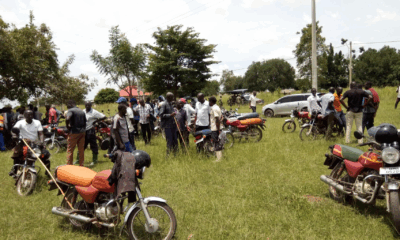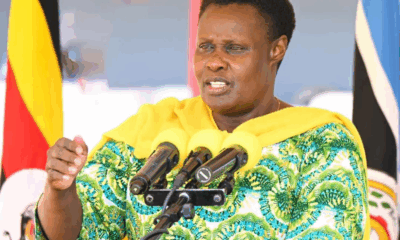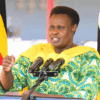News
Conservationists In move to stop biodiversity decline by 2030

David Duli the WWF country Director in Uganda
According to a study by Wild Wide for Nature (WWF) under the BIODEV 2030 project, Uganda is one of Africa’s richest countries in biodiversity despite its relatively small size.
Going by the study, Uganda has diverse ecosystems consisting of forests, wetlands, rangelands, lakes and rivers. The country has 53% of the world’s mountain gorillas, 11% of the global recorded species of birds, 7.8 % of global mammalian species, 19% of Africa’s amphibians and 14% of African reptilians.
However, there are a number of threats that tend to claim ecosystem leading to loss of biodiversity including conversion of natural habitats to agricultural land and infrastructural development.
It’s upon this basis that WWF and NEMA are pushing for voluntary commitments by stakeholders to enforce the legal framework to halt biodiversity decline by 2030 ahead of the International Day for Biological Diversity (IDB) slated for 22, May.
According to conservationists, biodiversity decline can be done through multi-stakeholder dialogue and science-based assessment.
David Duli, the WWF Uganda Country Director says that protecting biodiversity is central to tackling climate change, with deforestation accounting for 11% of global greenhouse gas emissions.
“The destruction and degradation of these vital habitats also increases the risk of extreme weather events, drives biodiversity loss, and exacerbates the spread of infectious diseases,” he said
Duli noted that the approach is designed to work in tandem with the existing efforts of governments, communities to enforce national laws, benefiting law-abiding producers and companies.
“The proposed legislation makes clear that illegally produced commodities have no place in the market, as we build back greener from coronavirus,” he added
He meanwhile, urged all government ministries to unite behind an ambitious mission, goals and targets to remove the sectorial drivers of biodiversity loss as well as decreasing the ecological footprint.
“We call upon our government to join the coalition to a great global diversity framework that is a tool for transformative change,” he said.
This year, the global theme for IBD is “We’re part of the solution,” which builds from the 2020 theme which was “Our solutions are nature.” Taking in account, the global themes for 2020 and 2021, the national theme for IBD 2021 is “Restoring nature together.”
Meanwhile, Francis Ogwal, the Head of Biodiversity at NEMA revealed that the unprecedented degradation of the environment will continue to claim the countries biodiversity if a collective effort in fighting against it is not attained.
“The choice of the national theme for IDB 2021 is meant to mobilize all Ugandans to take and sustain concrete action to restore the environment especially focusing on forests, wetlands and species of wild plants (flora) and wild animals (fauna),” he said.
He further said that UN has declared 2021 -2030 the Decade for Ecosystem Restoration. Thus, the national theme is timely to put Uganda on course to begin a serious and sustained Programme of restoration of ecosystems in Uganda.
Comments





















